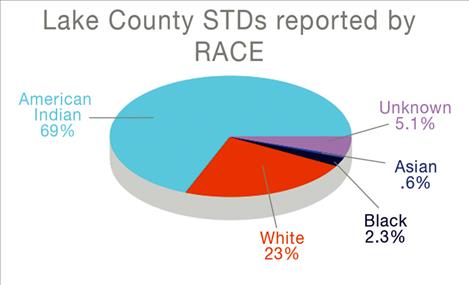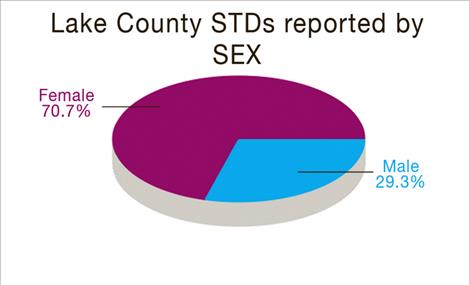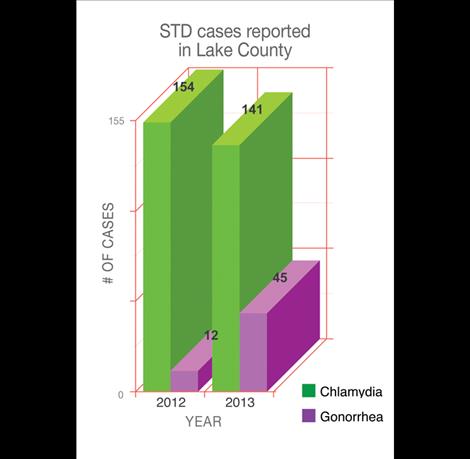Sexually transmitted diseases don’t discriminate
Hey savvy news reader! Thanks for choosing local.
You are now reading
1 of 3 free articles.
News from Lake County Public Health Department
POLSON — April is Sexually Transmitted Disease Awareness Month, and the staff at the Lake County Public Health Department is already well aware of the prevalence of STDs in our area.
According to the LCPH Communicable Disease staff, many times people don’t know they are infected due to lack of signs or symptoms, or sometimes they think symptoms are related to other health conditions. STDs don’t discriminate — you can be any race, any socioeconomic level, or any age — the one common factor is that you have engaged in unprotected sexual activity.
Sexually transmitted diseases are preventable, but once contracted, some such as herpes and HIV are not curable. The nurses at Lake County Public Health are happy to sit down and discuss how you can protect yourself. We encourage you to make an appointment by calling (406) 883-7288.
The following are some facts about STDs from the Center for Disease Control and from Lake County Public Health:
• Chlamydia is the most commonly reported STD in Montana and in the U.S. The highest proportion of cases is among women aged 15 to 24.
• Genital Human Papillomavirus (HPV) - More than 50 percent of sexually active people will get HPV at some point in their lives.
• At least 50 million people are already infected with genital herpes, or about one in six people.
• Trichomoniasis (Trich) - There are an estimated 3.7 million people in the U.S. infected with Trich.
• About 36,000 new cases of syphilis are reported each year.
• About 50,000 new HIV infections occur each year, with an estimated 1.2 million people already living with HIV.
• The highest rates of gonorrhea are among women aged 15 to 24 and men aged 20 to 24. In 2013, the rate of gonorrhea infections in Montana was 23 per 100,000 population, doubling the rate from 2012. Unfortunately, we are already on track for another big year of gonorrhea. Already in 2015 (January through March), nine cases of gonorrhea have been reported in Lake County/Flathead Reservation, the exact same number of cases seen during the same time period last year.
“Although the number of gonorrhea cases may not seem high to some, this is a huge spike in comparison to what we have seen previously,” said Sheena Madsen, LCPH Health Educator. “We used to only see a handful of cases each year. Suddenly, we jumped up to 12 cases in 2012 and then up to 45 cases in 2013. Unfortunately, I think the problem is going to get worse unless patients begin to understand the importance of being honest with their providers regarding sexual history and follow through with necessary care to treat the infection.”
STD and HIV screening recommendations:
• All adults and adolescents from ages 13 to 64 should be tested at least once for HIV.
• Annual chlamydia screening of all sexually active women younger than 25 years, as well as older women with risk factors such as new or multiple sex partners, or a sex partner who has a sexually transmitted infection.
• Annual gonorrhea screening for all sexually active women younger than 25 years, as well as older women with risk factors such as new or multiple sex partners, or a sex partner who has a sexually transmitted infection.
• Syphilis, HIV, chlamydia, and hepatitis B screening for all pregnant women, and gonorrhea screening for at-risk pregnant women starting early in pregnancy, with repeat testing as needed, to protect the health of mothers and their infants.
• Screening at least once a year for syphilis, chlamydia, and gonorrhea for all sexually active gay, bisexual, and other men who have sex with men.
• Anyone who has unsafe sex or shares injection drug equipment should get tested for HIV at least once a year.


















